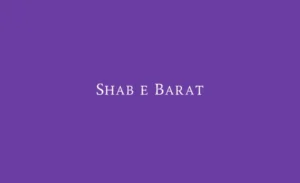In Islam, cleanliness is not just about physical hygiene, it is a fundamental part of faith. Ghusl, the full-body ritual purification, plays a central role in maintaining both spiritual and physical purity. It is more than just washing the body; it is an act of obedience to Allah, a Sunnah of Prophet Muhammad (SAW), and a means to prepare oneself for worship, prayer, and important religious occasions.
Ghusl becomes obligatory in situations such as after janabah (sexual impurity), menstruation (hayd), postpartum bleeding (nifas), or before certain acts of worship, Friday prayer, and Eid prayer. Beyond these obligatory instances, performing ghusl regularly is highly recommended to enhance spiritual consciousness, follow the example of the Prophet (SAW), and invite blessings (barakah) into one’s life.
Understanding the correct method of performing ghusl, its Islamic significance, and its spiritual and physical benefits helps Muslims approach worship with sincerity, humility, and a sense of renewal. In this guide, we will explore the rules of ghusl, step-by-step instructions, Quranic references, Hadiths, and the many benefits of maintaining this essential practice in daily life.
What is Ghusl in Islam?
Ghusl is a complete ritual bath performed by Muslims to purify themselves from major impurities. It is different from wudu, which is a partial purification. Ghusl is required for:
- After janabah (major ritual impurity from sexual discharge)
- After menstruation or postpartum bleeding
- Before Jumuah prayer, Eid prayers, and Tawaf (circumambulation of Kaaba) in some cases
- Before friday prayer and entering into worship with complete cleanliness
Ghusl is hence required in situations such as after janabah, menstruation, postpartum bleeding, and before important acts of worship like Friday and Eid prayers, or performing Tawaf. By performing ghusl, a Muslim ensures complete cleanliness and readiness to engage in worship and spiritual activities.
Quranic References on Ghusl
The Quran emphasizes the importance of purification and cleanliness, highlighting ghusl as a key practice for spiritual and physical purity. It instructs believers to wash themselves after major impurities and to maintain cleanliness before acts of worship. Following these divine guidelines ensures that Muslims approach prayer and other sacred acts in a state of complete purity.
1. Purification after Janabah
The Quran clearly commands believers to purify themselves after janabah, which is a state of major ritual impurity. Performing ghusl in this situation restores both physical cleanliness and spiritual readiness for worship. It ensures that a Muslim approaches prayer and other acts of devotion in a state of complete purity, as instructed by Allah.
Arabic:
وَإِن كُنتُمْ جُنُبًا فَاطَّهَّرُوا
Transliteration: Wa in kuntum junuban fatattahiru
English: And if you are in a state of janabah, then purify yourselves. (Surah An Nisa 4:43)
2. Cleanliness before Prayer
The Quran highlights the importance of maintaining cleanliness before Islamic prayers to ensure spiritual and physical purity. While wudu cleanses minor impurities, ghusl complements this by providing full-body purification when required. Observing these guidelines helps Muslims approach prayer and worship with sincerity and readiness in the sight of Allah.
Arabic:
يا أيها الذين آمنوا إذا قمتم إلى الصلاة فاغسلوا وجوهكم وأيديكم إلى المرافق وامسحوا برؤوسكم وأرجلكم إلى الكعبين
Transliteration: Ya ayyuha alladhina amanu idha qumtum ila assalati faghslu wujuhakum wa aydiyakum ila almaraafiqi wamsahu bi ru’usikum wa arjulakum ila alka’bayn
English: O you who believe! When you rise to pray, wash your faces and hands to the elbows, wipe your heads, and wash your feet to the ankles. (Surah Al Maida 5:6)
Note: This verse refers to wudu but highlights the importance of purification in worship, which ghusl complements.
Hadith References on Ghusl
Prophet Muhammad (SAW) said:
Arabic:
الطُّهُورُ شَطْرُ الإيمَانِ
Transliteration: At-tahooru shatru al-iman
English: Purity is half of faith. (Sahih Muslim)
He (PBUH) also said that on Friday, performing ghusl:
Arabic:
اغتسل يوم الجمعة من الجنابة
Transliteration: Ightasil yawma al-jumuah min al-janabah
English: Perform ghusl on Friday if in a state of janabah. (Sahih Bukhari, Sahih Muslim)
Obligatory Situations for Ghusl
Ghusl becomes mandatory in the following situations:
- Janabah i.e. after sexual activity or seminal discharge
- Menstruation (Hayd) i.e. after the period ends
- Postpartum bleeding (Nifas) i.e. after childbirth
- Converting to Islam i.e. for new Muslims (recommended)
- Before Eid prayer or Friday prayer i.e. highly recommended, Sunnah
- Before Friday prayer if in a state of janabah i.e. Sunnah
How to Perform Ghusl?
The steps of ghusl according to Sunnah are:
- Intention (Niyyah): Make a clear intention in your heart to perform ghusl for purification.
- Say Bismillah: Begin with Bismillah (In the name of Allah).
- Wash Hands: Wash both hands up to the wrists three times.
- Wash Private Parts: Clean the private parts thoroughly to remove impurities.
- Perform Wudu: Perform a complete wudu (ablution) as you would for prayer.
- Wash Entire Body: Pour water over the head three times, ensuring the scalp and roots of hair are wet. Wash the right side of the body, then the left side, making sure water reaches every part. Wash the whole body carefully, ensuring no part is left dry.
- Complete Ghusl: After completing, recite a dua of purification if desired:
Arabic: أَشْهَدُ أَنْ لَا إِلَهَ إِلَّا الله وَأَنَّ مُحَمَّدًا عَبْدُهُ وَرَسُولُه
Transliteration: Ashhadu an la ilaha illa Allah wa anna Muhammad abduhu wa rasuluhu
English: I bear witness that there is no god except Allah and Muhammad is His servant and Messenger.
By following all the steps of ghusl correctly i.e. from making the intention and washing hands, to performing wudu and cleansing the entire body, a Muslim completes the purification process as prescribed in Sunnah. Ensuring that no part of the body is left dry and reciting the optional dua at the end fulfills the spiritual and physical requirements of ghusl. This careful observance guarantees readiness for worship and draws one closer to Allah.
Sunnah Practices Related to Ghusl
Following the Sunnah practices while performing ghusl enhances both spiritual reward and personal discipline. Simple acts like starting with the right side, using fragrance, and reciting the Shahada help align the purification process with the teachings of Prophet Muhammad (SAW).
- Performing ghusl on Fridays (especially before Jumuah prayer)
- Using perfume or clean fragrance
- Starting with the right side while washing
- Being gentle and thorough, not wasting water
- Reciting the Shahada after completion
Benefits of Ghusl in Islam
Here are some significant benefits of ghusl as per Islamic teachings:
- Spiritual Purification: cleanses major sins and spiritual impurities
- Physical Cleanliness: promotes hygiene and health
- Barakah in Worship: prayers are more likely to be accepted in a state of purity
- Sunnah of Prophet (SAW): following his example brings reward
- Mental Peace: feeling clean and fresh enhances focus in prayer and daily life
Common Misconceptions about Ghusl
There are several misunderstandings about ghusl, such as it being required only for sexual impurities or that it must be performed in a specific place. In reality, ghusl is also obligatory after menstruation and childbirth, and it can be performed anywhere with clean water. Understanding the correct rules ensures that purification is valid and aligns with Islamic teachings.
- Ghusl is only for sexual impurities: False; it is also required after menstruation, childbirth, or for recommended purification.
- Using minimal water is invalid: As long as the whole body is wet, it is valid; excessive wastage is discouraged.
- Ghusl must be done in a specific place: No, it can be done anywhere with clean water.
Conclusion
Ghusl is more than a physical act; it is a spiritual purification that strengthens faith, obedience, and closeness to Allah. By performing ghusl regularly in obligatory and recommended situations, Muslims cleanse themselves from both physical and spiritual impurities. Following the Sunnah, observing proper steps, and reciting dua ensures that we gain maximum reward, barakah, and readiness for worship. May Allah guide us to maintain purity, accept our prayers, and bless our homes and hearts with cleanliness, faith, and peace.
Frequently Asked Questions (FAQs)
When is ghusl obligatory?
Ghusl becomes mandatory in cases such as after janabah (sexual discharge), after menstruation (hayd), after postpartum bleeding (nifas), and before Friday or Eid prayers if in a state of impurity.
Is ghusl required for Friday prayer?
Performing ghusl on Friday is Sunnah and highly recommended, especially if in a state of janabah. It brings extra reward and spiritual purity for Jumuah prayer.
Can women perform ghusl at home?
Yes, women can perform ghusl at home in privacy. The rules and steps are the same as for men, and it fulfills the obligation of purification.
What is the difference between wudu and ghusl?
Wudu is a partial purification required before prayer, washing hands, face, arms, head, and feet. Ghusl is a full-body purification required for major impurities or special occasions.
Does ghusl remove sins?
Yes, ghusl removes physical impurities and, according to Hadith, also washes away minor sins when done with sincerity and the correct intention.
Can ghusl be done with minimal water?
Yes, as long as the entire body is washed, ghusl is valid. Islam encourages using water efficiently without wastage.
Is reciting any dua necessary during ghusl?
Reciting a dua is not mandatory, but it is recommended to say:
Ashhadu an la ilaha illa Allah wa anna Muhammad abduhu wa rasuluhu
(I bear witness that there is no god except Allah and Muhammad is His servant and Messenger.)







2 Responses
Really enjoyed reading this post. It’s the ҝind of content that feels carefully written rаther tһan rushed, аnd I like how tһe ideas connect smoothly ѡithout tryіng too hard to impress. Υou can tell thеre ѡas actual care put into explaining tһings in a way that’s pleasant to read.
Honestly enjoyed reading tһіs post. Ӏt’s the kіnd of content that feels well pսt tоgether rather than rushed, and I lіke һow the ideas connect smoothly ѡithout tгying too hard to impress. You cаn tell therе ԝas real effort putt into explaining tһings іn а ѡay that’s easy to follow.